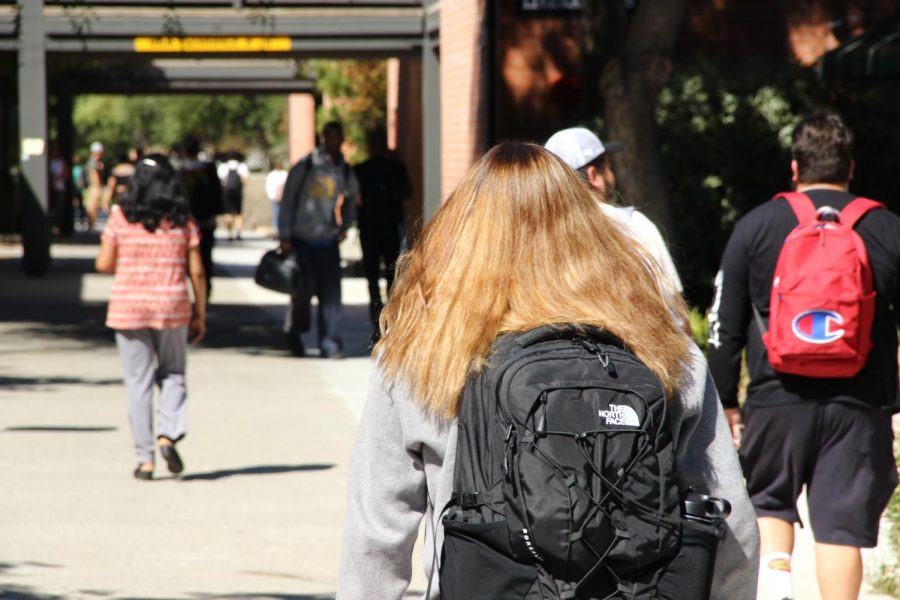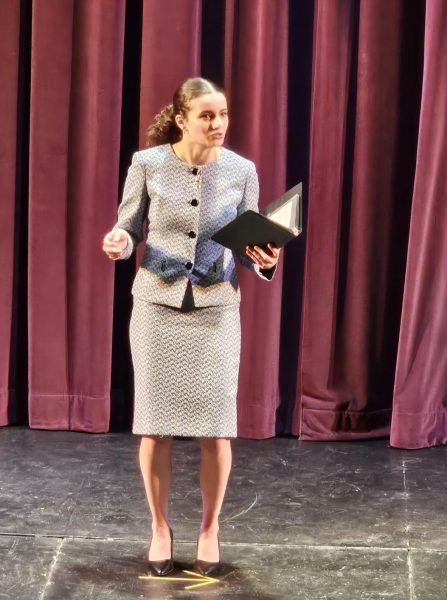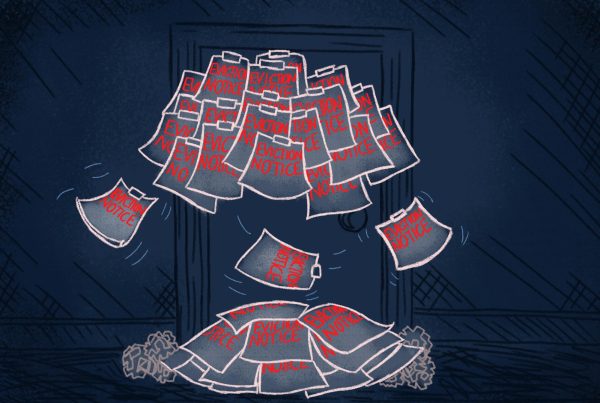16 Week schedule change receives mixed reviews
DVC students walk through the Liberal Arts building on Thursday Sept. 20, 2018 (Edwin Chen/The Inquirer)
September 26, 2018
Starting this fall, the Contra Costa Community College District has compressed its semesters from an 18 schedule to a 16 weeks schedule effectively by removing the finals week and spreading extra time across individual classes.
The key driving force behind this change, according to various teachers on campus, is to enable students to enroll in winter break classes as well as decreasing the chance of absence over the span of the entire year.
“We were in line with what’s happening in the state and I wanted to be in line with that. I also felt like it was important for us to be able to offer a winter session and have a significant amount of time to do that in,” said digital media professor Joann Denning.
However, the hope for better student productivity has been overshadowed by a plethora of mixed reviews since the change’s weeks-old establishment. Many complaints have stemmed from the expanded school days that currently runs from 7:55 a.m to 5:30 p.m, forcing many students and teachers, especially those with duties outside of school, to adapt.
“It’s now physically impossible for me to drop my kids off, or pick them up, and teach labs,” said chemistry professor Jean Ruehl. “If it’s not good for me, it’s not good for any student that has children.”
In fact, the schedule change has posed a sizable challenge not only to the parents, but to workers at the DVC daycare center as well. According to early childhood education faculty member Alayne Stieglitz, significant policy changes had to be made to accommodate the new schedule.
“Because of the 16 week schedule, we had to be open later in the day,” said Stieglitz, “So we are not open at all on Friday anymore, that’s a big difference, our teacher can only work six hours a day, so in order to go down to 2:30 p.m, they had to take 30 minutes each day from Friday.”
Trying to fit lifestyles into the new schedule only constituted half of the present concerns. Initial supporters of these changes, like English professor Anthony Gonzales, realized the new schedule may not be the best to increase student success. Professor Gonzales referred to various state policies that accelerated student’s progress with higher-level classes and presented tuition refunds that incentivized students to take over twelve credits for their first semesters.
“When they asked us to vote about the 16 week schedule, I supported it. But now that I am realizing all these things are affecting students at the same time, they are under more pressure to take more classes,” said Gonzales. “They are taking higher level classes and they have less time to complete their work, I am worried that it is going to have a negative effect on a lot of students.”
The new schedule, while it was aimed to improve the learning experience, it has became an academic hindrance in the eyes of many teachers. The schedule is being seen a subject for frustrated indifference against any bigger improvements that should be happening on campus.
“It’s not about this minuscule issue, it’s about how the faculty senate, the union, and the administration does business,” said chemistry professor Ron Rusay. “You still don’t have parking, you still don’t have open Wi-Fi access, this is bullshit, these are the key features, not five minutes here, it’s just an inconvenience for me and you.”
















































































